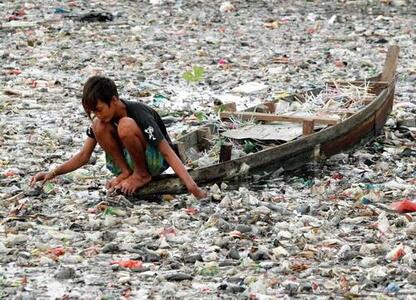100 signatures reached
To: Tesco, M&S, Waitrose, Asda, Morrisons.
DRASTIC PLASTIC UK

Reduce/ban the amount of unnecessary plastic used for packaging for a more sustainable material.
Why is this important?
Plastic, is not the disposable, one use magic material we were led to believe in the 1950's. The miraculous cheap, lightweight, disposable, durable substance, was years later, discovered to be toxic, none biodegradable, and is having a huge global negative effect for both humans and animals. Plastic never disappears into nothing, it is always there, breaking down into small micro plastics, which attract toxic, harmful chemicals damaging all life on the planet including ourselves. Fish in the oceans, are consuming, these meaning that we are too. It's killing marine plant life which provides 70% of the earths oxygen, after all, the world is mostly blue, not green. We've produced more plastic in the past ten years than we have in our entire history with not even half of it being recycled. 8 million tones of plastic being put in the ocean a year.
Other countries across the world are taking the lead with plastic bag bans, plastic cutlery and plates bans and the 'zero waste Europe' network installing plastic bottle deposit and recycling schemes, why are we so behind!?
Further reading...
FEW FACTS
It’s a durable, versatile material ideal for many applications, however, over 50% of it is used once then thrown into landfills or the ocean.
More than 8 million tons of plastic is dumped in our oceans every year
300 million tonnes are produced every year, producing more over the last ten years than during the whole of the last century.
To produce one plastic bottle, it takes 6 litres of water. Which is six times the amount of water that’s going to be put inside it!
Plastic production accounts for 8% of the world’s oil preserves.
ENVIRONMENTAL IMPACT
Fish in the north pacific ingest 12,000 to 24,000 of plastic per year.
97.5% of Laysan Albatross chicks (Sea birds) have plastic in their stomach causing death and potential extinction.
The ratio of plastic to plankton in the Mediterranean Sea is 1 to 2. In the most polluted places there’s six times more plastic than plankton.
1 in 3 species of marine species are endangered from entangled in marine litter and ingestion.
Plastics toxic emissions are damaging marine eco systems which are dependent on marine plants. These plants produce 70% of the earths oxygen and remove 40% carbon. This has resulted in over 405 dead zones in the world, 5000 sq miles of the gulf of Mexico almost devoid of life being one of them.
HOW THIS EFFECTS HUMAN HEALTH?
Scientific research has proven plastic releases harmful chemicals.
Micro plastic in the ocean absorb high levels of pollutants and dangerous endocrine disrupting chemicals, which can cause cancerous tumours, birth defects, infertility, developmental disorders and anything else hormone related. Fish that we eat are eating these plastics meaning it’s getting into our systems as well.
NOT DISPOSABLE
You can never ‘throw plastic away’, it’s always there. Either in the form of a smog in the ocean, or shipped to different countries. Since recycling is not a very profitable market. China banned being sold plastic in 2016, so now it gets exported to places like India where people sort through endless rivers of rubbish to find pieces to sell. The rest makes it was down the river into the sea.
WEBSITE REFERENCES
http://www.greenseas.org/
http://www.plasticoceans.org/
https://www.5gyres.org/
Other countries across the world are taking the lead with plastic bag bans, plastic cutlery and plates bans and the 'zero waste Europe' network installing plastic bottle deposit and recycling schemes, why are we so behind!?
Further reading...
FEW FACTS
It’s a durable, versatile material ideal for many applications, however, over 50% of it is used once then thrown into landfills or the ocean.
More than 8 million tons of plastic is dumped in our oceans every year
300 million tonnes are produced every year, producing more over the last ten years than during the whole of the last century.
To produce one plastic bottle, it takes 6 litres of water. Which is six times the amount of water that’s going to be put inside it!
Plastic production accounts for 8% of the world’s oil preserves.
ENVIRONMENTAL IMPACT
Fish in the north pacific ingest 12,000 to 24,000 of plastic per year.
97.5% of Laysan Albatross chicks (Sea birds) have plastic in their stomach causing death and potential extinction.
The ratio of plastic to plankton in the Mediterranean Sea is 1 to 2. In the most polluted places there’s six times more plastic than plankton.
1 in 3 species of marine species are endangered from entangled in marine litter and ingestion.
Plastics toxic emissions are damaging marine eco systems which are dependent on marine plants. These plants produce 70% of the earths oxygen and remove 40% carbon. This has resulted in over 405 dead zones in the world, 5000 sq miles of the gulf of Mexico almost devoid of life being one of them.
HOW THIS EFFECTS HUMAN HEALTH?
Scientific research has proven plastic releases harmful chemicals.
Micro plastic in the ocean absorb high levels of pollutants and dangerous endocrine disrupting chemicals, which can cause cancerous tumours, birth defects, infertility, developmental disorders and anything else hormone related. Fish that we eat are eating these plastics meaning it’s getting into our systems as well.
NOT DISPOSABLE
You can never ‘throw plastic away’, it’s always there. Either in the form of a smog in the ocean, or shipped to different countries. Since recycling is not a very profitable market. China banned being sold plastic in 2016, so now it gets exported to places like India where people sort through endless rivers of rubbish to find pieces to sell. The rest makes it was down the river into the sea.
WEBSITE REFERENCES
http://www.greenseas.org/
http://www.plasticoceans.org/
https://www.5gyres.org/
